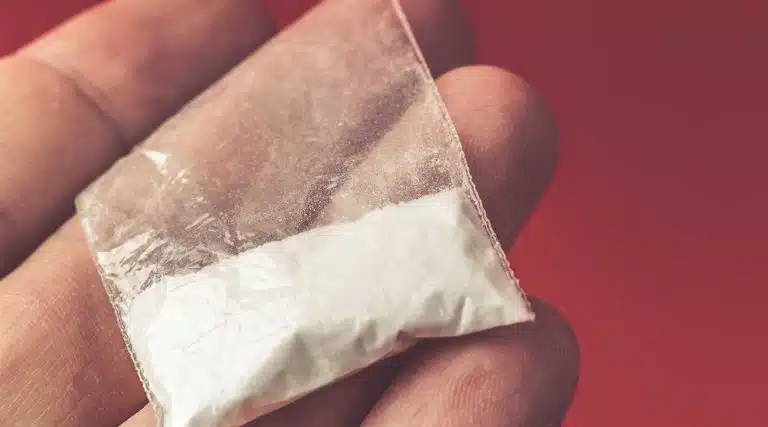Is Cocaine A Stimulant? | What Type Of Drug Is Cocaine?
- What Type Of Drug Is Cocaine?
- Cocaine Effects
- Cocaine High
- Side Effects Of Cocaine
- Long-Term Effects Of Cocaine
- Cocaine And Alcohol
- Cocaine Addiction Treatment

Cocaine is a natural stimulant derived and purified from the coca plant. Cocaine is not a depressant, narcotic, hallucinogen, amphetamine, or steroid.
What Type Of Drug Is Cocaine?
Cocaine is a stimulant that elevates activity in the body and central nervous system when taken.
This classification is important because it impacts the broad range of effects that cocaine can have, as well as it’s potential interactions and risks if taken with other substances.
Cocaine Effects
Cocaine hydrochloride, a white powder or crystalline substance purified from coca leaves in South America, works by locking select neurotransmitters—including dopamine—inside the synapses of the brain.
This increases activity in the body and mind for a short period (often around fifteen or twenty minutes), and stimulates the brain’s reward pathways, causing a high.
Cocaine is an addictive drug and using or snorting any form of cocaine, including freebase and crack cocaine, is illegal in the United States. However, cocaine is sometimes administered for medical use as a local anesthetic.
Cocaine High
Those who take higher doses of cocaine generally experience feelings of:
- euphoria/pleasure
- energy
- alertness
- confidence
- aggression
- increased social tendencies
- increased talkativeness
- sexual arousal
- hypersensitivity to touch, sight, taste, smell, and hearing
- reduction in appetite or hunger
Side Effects Of Cocaine
The stimulant effects of cocaine are strong enough that the drug can cause sudden death from overdose, cardiac arrest, or seizures.
Other short-term physical side effects of cocaine use on the body include:
- constricted blood vessels
- dilated pupils and bloodshot eyes (“cocaine eyes”)
- elevated body temperature
- increased or irregular heart rate
- elevated blood pressure
- headaches
- tremors
- muscle twitches
- vertigo
- abdominal pain
- nausea
Because cocaine is a fast-acting, short-lived drug, it’s frequently taken over and over again in an extended binge that delays the comedown/crash effect.
Mental changes during a cocaine binge can lead to mood swings, bizarre behavior, breaks from reality, panic attacks, hallucinations, violent behaviors, and psychosis.
Long-Term Effects Of Cocaine
The short-term wear and tear of cocaine drug use adds up over time, with declining mental health, nosebleeds, hepatitis and HIV/AIDs infections, brain damage, and cardiovascular damage common.
Cocaine’s Interactions With Other Drugs
Cocaine is frequently used with other drugs (known as polysubstance abuse) to enhance or alter its effects. However, the serious risks involved in cocaine use become far worse and less predictable when other drugs are added to the equation.
Cocaine And Alcohol
Drinking before, during, or after taking cocaine will form the chemical byproduct cocaethylene in the liver. Cocaethylene interferes with cocaine elimination and magnifies the stress that cocaine puts on the heart and liver, increasing the risk of heart attack and damage.
Amphetamines
Cocaine and amphetamines (including Adderall, Ritalin, crystal meth, and MDMA) are stimulant drugs with similar action and effects when compared to cocaine.
If taken together, the resulting high can be elevated and longer-lasting but with a higher risk of side-effects, heart failure, seizures, coma, and deadly overdose.
Antidepressants
Taking cocaine with antidepressants like Prozac can cause ‘serotonin syndrome’ with side effects ranging from uncontrollable sweating to tremors, shivers, increased heart rate, and death.
Benzodiazepines
Benzos are psychoactive depressants and are sometimes taken to ease the symptoms of a cocaine crash. However, this can result in a push-pull/stimulant-vs-depressant bodily reaction with unpredictable mental effects and increased risk of fatal overdose.
Marijuana
Using marijuana with cocaine can trigger issues ranging from tachycardia (elevated heart rate), to paranoia, anxiety, and accidental overdose due to marijuana’s action as a vasodilator.
Marijuana use may also worsen the symptoms of cocaine withdrawal once you stop taking the drug.
Opioids & Heroin
Heroin is an opioid drug and potent central nervous system depressant. Cocaine and heroin together (‘speedball’) can yield longer lasting and more intense euphoric effects than either drug can provide alone.
Speedballing increases the risk of delayed overdose and death once the effects of the cocaine wear off, leaving the longer-acting heroin to fully suppress heart rate and breathing.
Cocaine Addiction Treatment
Breaking free from cocaine abuse can be difficult, especially without the support of a professional and compassionate team.
Addiction treatment centers through Ark Behavioral Health provide a variety of programs and services to help you stop taking cocaine, detox and overcome withdrawal symptoms, and achieve lasting recovery and sobriety.
To learn more, contact an Ark Behavioral Health Specialist today.
Written by Ark Behavioral Health Editorial Team
©2024 Ark National Holdings, LLC. | All Rights Reserved.
This page does not provide medical advice.
Drug Policy Alliance - 10 Facts About Cocaine
National Institute on Drug Abuse - How does cocaine produce its effects?
National Institute on Drug Abuse - What are the short-term effects of cocaine use?
U.S. National Library of Medicine: MedlinePlus - Cocaine

Questions About Treatment?
Ark Behavioral Health offers 100% confidential substance abuse assessment and treatment placement tailored to your individual needs. Achieve long-term recovery.
100% confidential. We respect your privacy.
Prefer Texting?
Our friendly support team is here to chat 24/7. Opt out any time.







 Learn More
Learn More








